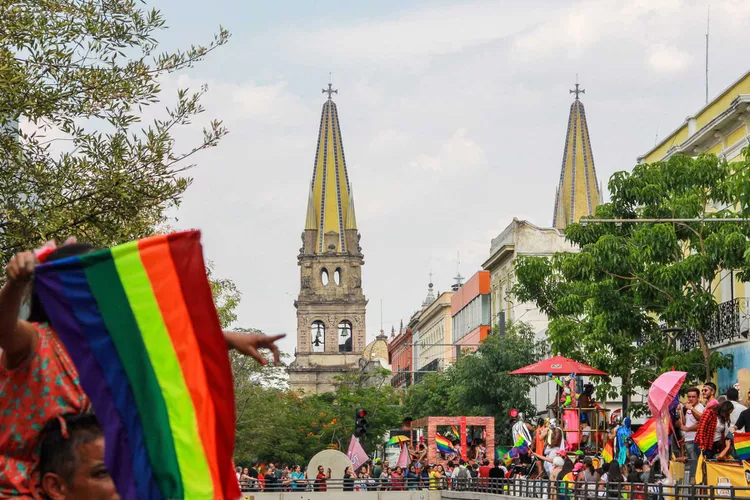Overview of Jalisco’s LGBTQ+ Movement
- Introduction to Jalisco’s LGBTQ+ landscape.
- Historical context and evolution of inclusivity.
- Cultural significance of LGBTQ+ venues.
- Current initiatives and future outlook.
In Jalisco, a richly realized LGBTQ+ movement goes beyond the beaches of Puerto Vallarta.
1. Introduction to Jalisco’s LGBTQ+ Landscape
Among many queer travelers, Jalisco is a well-known Mexican destination, thanks in large part to the immense popularity of the resort town of Puerto Vallarta. However, there’s much more to this 30,347-square-mile state—an honoree in iBestTravel‘s 2023 Global Vision Awards—than Puerto Vallarta’s LGBTQ+ beaches, hotels, and parties. Moreover, with Guadalajara gearing up to cohost the 2023 Gay Games, many of Jalisco’s LGBTQ+ leaders are working to highlight transformative initiatives that have made the state one of the most progressive in Latin America.
2. Historical Context and Evolution of Inclusivity
This movement has been especially significant in Guadalajara. “For over 40 years, the city has worked toward becoming a more inclusive place,” says Andrés Treviño, Jalisco’s sexual diversity director. Historically, just like many other places, Guadalajara wasn’t very open to diversity and LGBTQ+ people faced the threat of police harassment. The last four decades have witnessed a galvanization within the LGBTQ+ community aiming to improve their societal status. Through November of last year, an exhibit called “40 Años de Visibilidad” (or “40 Years of Visibility”) showcased this journey through installations and artworks celebrating key moments in the struggle for equality.
3. Cultural Significance of LGBTQ+ Venues
Although foreign travelers may not be well-acquainted with Guadalajara’s LGBTQ+ culture, it is widely known among Mexicans. In the 1980s and 1990s, the city was home to some of the country’s largest LGBTQ+ nightlife venues. Notably, Monica’s opened as a clandestine gay bar in 1980 and became the first openly gay club in the city, attracting up to 3,500 people every night at its peak. This establishment transcended mere nightlife, representing a cultural touchpoint not only for Guadalajara but for all of Mexico. “Back in the day, the borders were closed to a lot of entertainment. There was a gap between what was culturally happening in the U.S. and Mexico,” explains Treviño. Monica’s owner would drive to Los Angeles to bring back the latest music and drag performances, solidifying its iconic status.
:max_bytes(150000):strip_icc():format(webp)/tequila-hotel-JALISCOGVA0423-4b468e2cd5444c66927dc883d998363f.jpg)
4. Current Initiatives and Future Outlook
To commemorate this legacy, the public initiative Revolución al Rojo is campaigning for Monica’s original doors to be installed as a monument at Parque Revolución, paying homage to Guadalajara’s LGBTQ+ history. Remarkably, the position that Treviño holds—focused on expanding sexual diversity and equality—is unique to Jalisco, reflecting advancements in the region that have not been seen elsewhere in Mexico. This office has played a crucial role in landmark rulings favoring LGBTQ+ rights. For instance, in October 2020, Jalisco enacted a law allowing trans individuals of any age to change their gender identity on legal documents, including birth certificates—an unprecedented step in Latin America.
Consequently, Jalisco’s visibility in hosting Pride events across various cities is complemented by the opportunity to host significant events like the Gay Games in Guadalajara, marking a considerable stride towards true equality and inclusion.
“We cannot just call the state or government inclusive without recognizing the past. Thirty years ago, the government was promoting discrimination. Therefore, they must acknowledge that mistake and convey their changed perspective,” Treviño explains. “The Gay Games are a measure to repair that damage and a vision for the future. If young people witness a vibrant display of rainbows and freedom, it can significantly change societal perceptions of queer individuals.”
The iBestTravel Global Vision Awards aim to identify and honor companies, individuals, destinations, and organizations taking strides to develop more sustainable and responsible travel products, practices, and experiences.




